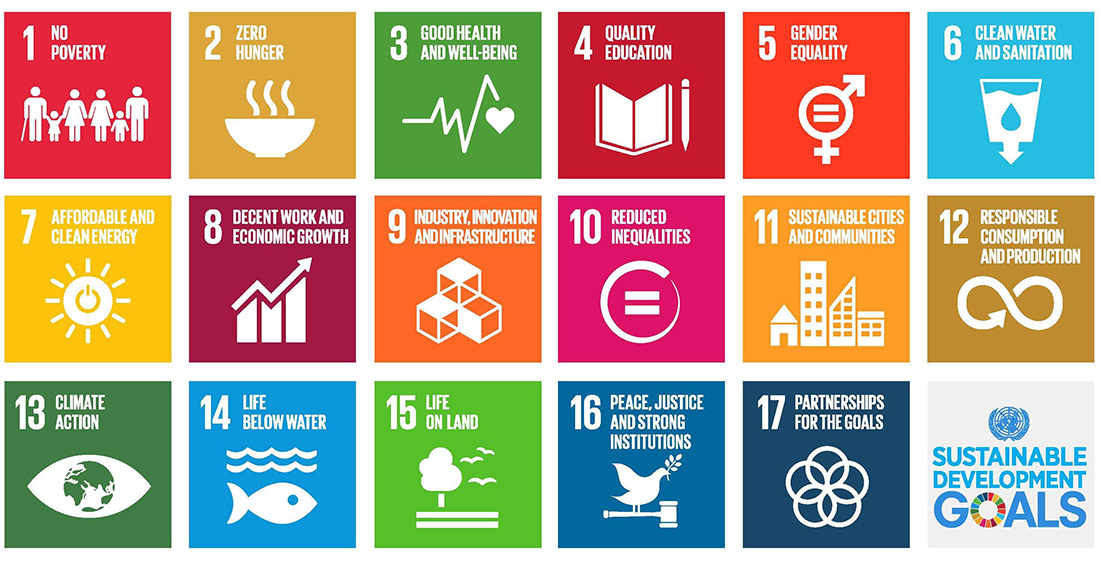17 Goals: These Austrian social enterprises empower children and young people

Social entrepreneurs are inventors who take on social challenges. Here we present seven innovative approaches from Austria that strengthen educational opportunities and accompany children and young people in challenging life situations.
Children and young people are our future. What can society do to ensure that they grow up as sheltered as possible, have equal educational opportunities, find their way in an increasingly complex world, learn to cope with crises and make use of the many future opportunities that the world offers? In this blog post, we present eight social enterprises from Austria that are addressing these challenges in very different ways, some of which have developed completely new, innovative approaches.
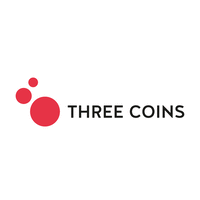
Three Coins – sustainable handling of money as a life skill
To move freely and self-determinedly through life, completely without money worries. This is the vision of Three Coins. The social enterprise from Vienna develops financial education projects, especially for children and young people, so that they learn how to handle money safely. This includes skills such as
- to have control over one’s own budget
- setting financial goals and achieving them
- being prepared for the unexpected
- planning ahead for old age
- demonstrating reflective consumer behavior
- recognize external influences on their own behavior
Three Coins works with parents, schools, and companies and develops a variety of new formats, most recently a board game for families called “Schotterbande”, which teaches how to deal with money in a playful way.
«It’s about people as individuals, their values, ideas, fears and desires. And it’s about being a pilot of one’s own money life and changing one’s own behaviour in a positive way.» – Three Coins
Sindbad – 1:1 mentoring for young people
Sindbad is a social enterprise founded in 2016 that connects young people from different walks of life. The whole thing is a win-win situation: the mentors develop leadership skills and the mentees benefit from trained and reflective guidance. Sindbad is aimed at 13- to 15-year-old students who are at the transition from 9th grade to a teaching profession or a secondary school. The mentors are themselves students and young professionals who provide support for 12 months at a time. With its approach, Sindbad is
- Opportunity provider for pupils in new secondary schools
- Lubricant between school and apprenticeship for training companies
- Platform for personality training and social responsibility
Sindbad focuses on human relations: listening, being interested, wanting to learn, being supportive are seen as the most important factors in the development of a person. Sindbad is currently represented at 5 locations in Austria, with Salzburg and Vorarlberg to be added this year.
At Sindbad, pupils are given a personal mentor to take
to take concrete steps together on their educational path.
«Our vision is a society in which young people can take charge of their own lives.» – Sindbad
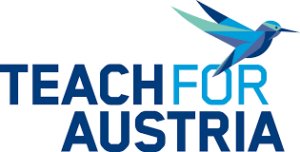
Teach for Austria – Because Education Should Not Be a Privilege
Teach for Austria has developed a fellowship programme that offers talented university graduates and young professionals from all disciplines a change of perspective. Together with educators, parents and local educational institutions, the fellows work full-time as fully-fledged teachers or kindergarten educators and work to ensure that all children can follow successful educational paths. They are trained for this by Teach for Austria and actively supported within the framework of a leadership programme.
The fellows work specifically in schools or kindergartens that work under challenging conditions and are attended by a particularly large number of children from low-income families. With their work, Teach for Austria wants to ensure that in the future the opportunity for education is less dependent on the parental home.
Teach for Austria is part of the global Teach for All network, which also includes Teach First in Germany.
«Our vision is that a child’s potential and not the parents’ paycheck decides his or her education and future.» – Teach for Austria
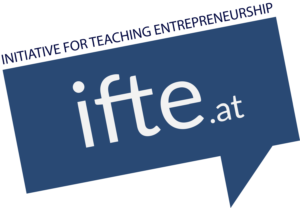
IFTE – What if our youth shapes the future?
IFTE is all about entrepreneurship! An entrepreneurial attitude, according to the guiding principle, is above all personality development. It releases potential to help shape society in a positive way. IFTE’s goal is to empower young people to become active and shape their own future.
IFTE was founded by Johannes Lindner, who was awarded the first Ashoka Fellow in 2014 for his visionary work. As a teacher at a Vienna commercial academy, Lindner had developed a new teaching and learning method to impart entrepreneurship to students. Around this strong character-building teaching approach, he built a network of teachers and people from ministries, school boards and business to define new educational goals, develop new workbooks and bring new learning methods into the classroom.
Today, IFTE has a variety of formats to push the issue further. These include:
- the annualEntrepreneurship Summit Vienna as the central Austrian contribution to the international Global Entrepreneurship Week,
- the Next Generation Idea and Business Plan Competition, which addresses both middle school students (“idea challenge”) and high school students (“real market challenge”) in two categories. The latter develop a fully developed business plan
- the debating club “Misch dich ein” or the national competition “Schüler*innen Debattieren”.
All modules aim to help young people become competent problem solvers and learn to argue and defend their ideas.
In addition, IFTE provides schools with tools to start entrepreneurial challenges together with the students themselves, such as the Starte Dein Projekt initiative or the Changemaker programme. The IFTE team offers young people a platform and supports them with workshops and mentors in implementing their own ideas. IFTE is internationally networked and has developed the
«Young people should learn to actively participate in society – by setting goals, learning to deal with setbacks and challenges, working creatively on new solutions and seeing the future as full of opportunities and possibilities. Because entrepreneurs are in demand in all areas of life!» – IFTE
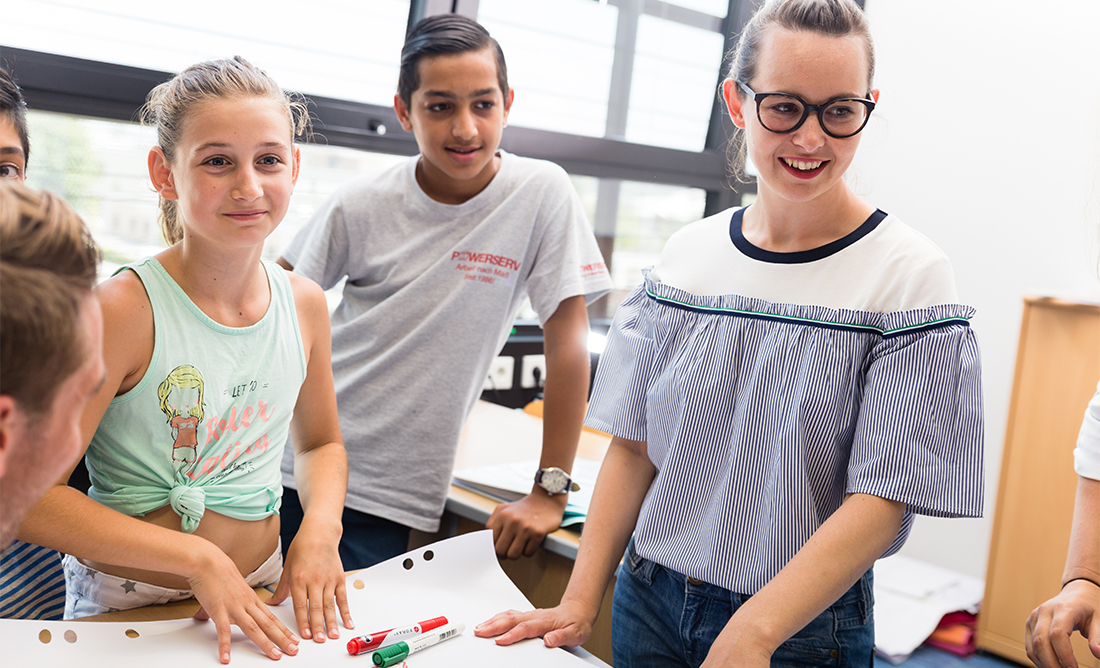
Teach for Austria uses a leadership programme to bring selected university graduates
to challenging kindergartens and schools as teachers.

Talentify – peer-to-peer learning support and stepping stone to the world of work
is made for students and school leavers.
The social enterprise talentify wants all young people to be able to develop their full potential and achieve the highest possible level of education, regardless of origin, social situation and financial background. To promote this, talentify connects young people across schools via a peer-to-peer learning support platform, assists in finding strengths and talents and in finding their first job. The organisation is based on two pillars:
- Talentify.me is a peer-to-peer platform for students. It allows students to find other students to learn together, collect points and celebrate successes. The mobile app is available in Austria and now also in Germany. Click here to go directly to Talentifyme.
- Talentify.works gives companies visibility in the student network. Youth-friendly job descriptions and company profiles, including job vacancies, provide insights and support in making decisions about the future. At the same time, Talentify advises companies on issues such as youth-friendly communication or employer branding.
The idea of learning assistance between pupils had quite a long lead time. It came about 15 years ago when Bernhard Hofer developed the junior company “Easy Learning – Pupils Helping Pupils” with three fellow pupils from the HTL Innsbruck. After his studies and a few years of professional experience, he took up the idea again in 2014 and the award-winning social education network talentify.me was born.
And the next step is already planned. In the future, the talentify.academy is to be expanded into a central, digital learning tool around the topics of lifelong learning and future skills. Digital learning content will be designed on a wide range of topics for young people and companies and will be directly integrated into the talentify ecosystem.
«We are a young and dedicated team with a big heart for education and building the future together with young people, schools and companies.» – Talentify
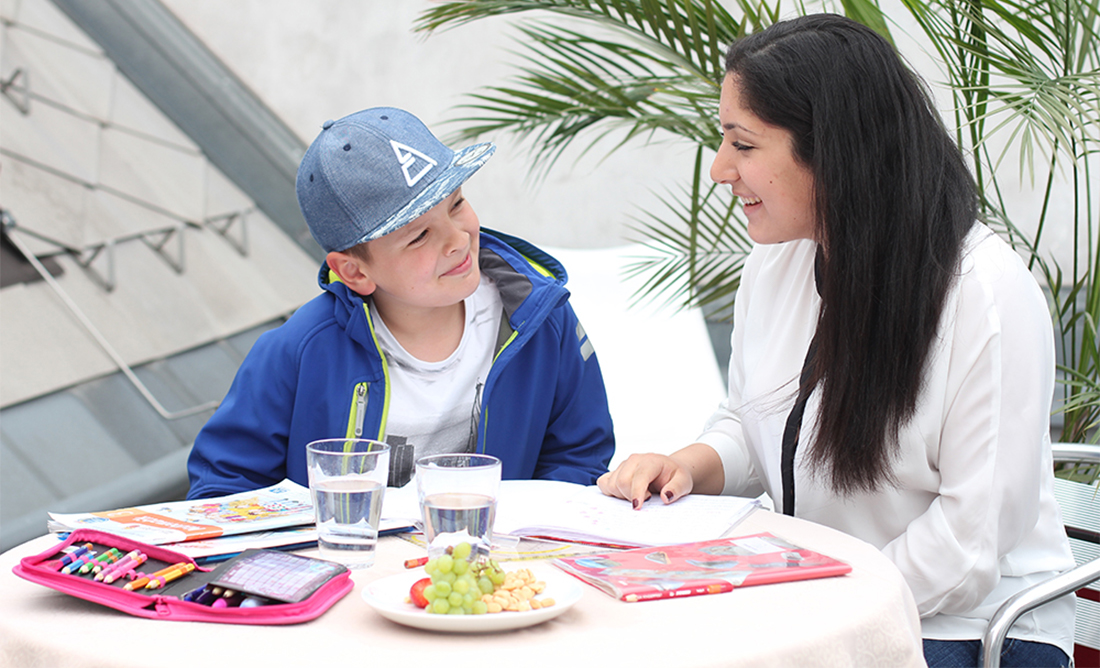
talentify.me has already been successfully active in Austria for several years
and supports tens of thousands of students on their (professional) path.

SchoolFox – The All-in-One School App
Founded in 2016, the Viennese EduTech company has launched an app that has become an indispensable part of teaching, especially during school closures. The multifunctional school app serves as a direct line between teachers and students, for example to obtain signatures, share documents, coordinate timetables or hold group discussions. Video lessons or homework can also be handled via the software.
The start-up is pursuing an ambitious growth course. After the successful start in Austria with about one million users in 6,000 schools, the app is now to be offered in ten other countries.
During the Corona crisis, SchulFox increased its support team fivefold and offered all services free of charge. A win-win situation: many schools were able to try out the service in a critical phase; many will also want to use it when the services become chargeable.
«We saw ourselves as critical infrastructure and so did the teachers and school administrators. We were the hotline for the ‘digital school.» – Julian Breitenecker, Co-Managing Director SchoolFox

FREI.Spiel – Volunteers for Children
The association for the care and promotion of socially disadvantaged children and youths FREI.Spiel from Vienna finds volunteer supporters who relieve after-school care centers and schools as additional caregivers. The focus is on the care and support of socially disadvantaged children and young people.
Due to their stable, continuous, long-term, and reliable commitment, the “FREI.Spieler” become important person of trust and reference for the children in the school environment. As independent, non-judgemental persons, they have the opportunity to build trust even where other actors reach their limits.
FREI.Spiel is a cooperation partner of the Socialheld platform, which connects people who want to get involved with non-profits. Last year, 27,000 volunteers joined the platform for the pandemic alone, either as private individuals or as part of an employee engagement offer from companies.
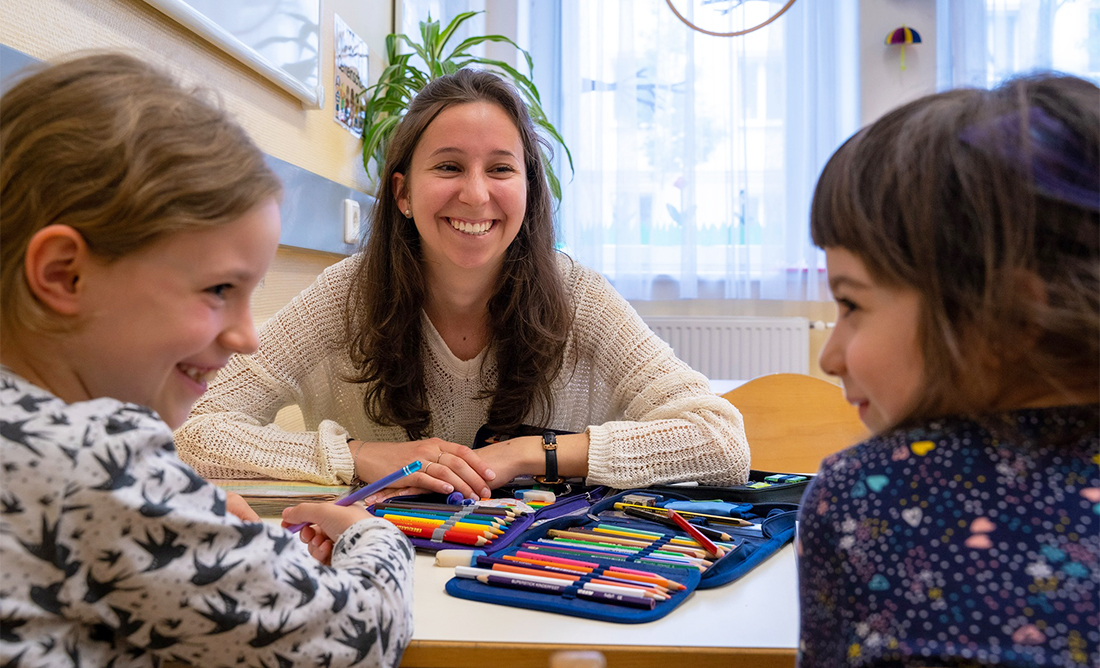
FREI.Spiel helps children who face special challenges,
socially more equitable opportunities for education.
Several of the outlined social enterprises are located in the Edu Hub Vienna. This co-working office, founded by Young Enterprises 10 years ago, offers space and networking opportunities especially for start-ups from the education sector and the education technology sector.
The 17 global goals for sustainable development, the Sustainable Development Goals (SDGs), are a roadmap for the future that the global community adopted in 2015. They are addressed to everyone: governments worldwide, but also civil society, the private sector and academia. The work of the social enterprises presented here has a particularly positive impact on SDG #4 (Quality Education).
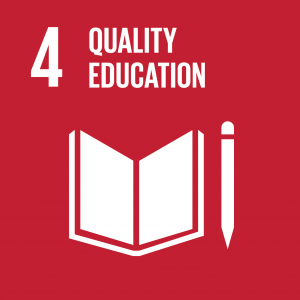
Goal 4 – Ensure inclusive and equitable quality education and promote lifelong learning opportunities for all
- Access to quality pre-primary education and free primary and secondary education for all girls and boys.
- Ensure equitable access to affordable and quality technical, vocational and tertiary education, including university education.
- Substantially increase the number of youth and adults who have the appropriate skills for employment, decent work, and entrepreneurship
- Build and expand inclusive and safe schools
- Achieve universal literacy
The engagement of social enterprises also has a positive impact on other SDGs. These include in particular SDG #10 (Reduce inequalities) and SDG #8 (Decent work and economic growth), as many of the social enterprises presented here accompany the leap into the world of work or promote the “entrepreneurial spirit”.


